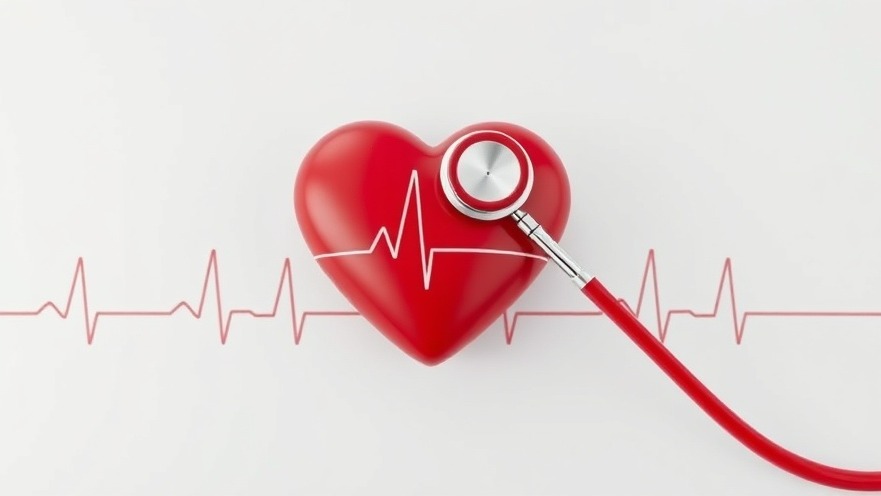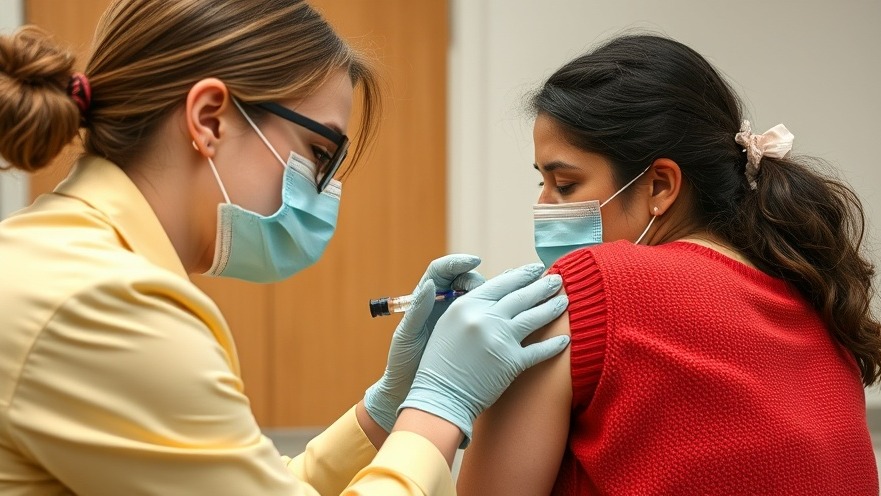
Boston Scientific's Accolade Pacemaker Recall: Essential Information for Health Practitioners
In a significant move that raises serious concerns for both patients and healthcare providers, Boston Scientific has issued a recall of its Accolade pacemaker devices due to a potential risk of dangerous malfunction. This recall comes as a response to the increased likelihood that these devices may enter Safety Mode, a state that restricts their functionality and can lead to severe health complications.
Understanding the Recall: What Devices are Affected?
The recall includes the Accolade, Proponent, Essentio, and Altrua 2 Standard Life and Extended Life pacemakers, along with the Visionist and Valitude cardiac resynchronization therapy devices. All these products are designed to manage heart rhythms, making their function essential for patients reliant on them. The safety communication from the U.S. Food and Drug Administration (FDA) indicates that serious adverse health consequences, including slow heartbeats, fainting, and even death, have been linked to the malfunctioning devices.
Why This Matters: The Risks Associated with Safety Mode
Safety Mode is designed to activate during critical device failures; however, when a device enters this mode, it can fail to regulate heart rhythms properly. Boston Scientific has reported over 832 injuries and, more alarmingly, two fatalities associated with this issue. Once a device has entered Safety Mode, it cannot return to its normal operational state and must be replaced to ensure patient safety.
Physicians should be particularly vigilant, especially concerning patients at high risk for complications from interrupted pacing. Immediate replacement is advised for these patients, while non-urgent replacement may be sufficient for others.
What's Behind the Recall: Manufacturing Issues
According to Boston Scientific, the devices are at risk of entering Safety Mode due to elevated battery impedance, a manufacturing defect affecting the battery's performance. The company has committed to updating its manufacturing work instructions to avoid similar issues in the future and will also implement software updates aimed at better battery health monitoring.
This transparency about potential flaws is essential for fostering trust among healthcare providers and patients alike, emphasizing the need for continued vigilance as updates are enacted.
Recommendations for Healthcare Providers
The FDA's recommendations for practitioners include routine follow-ups, whether remotely or in-office, to monitor device performance. Healthcare providers should not rely solely on battery life estimates while in Safety Mode since the functioning is significantly compromised. Routine evaluations should take place at least once every 12 months, especially as the battery approaches its end of life.
If there are signs that the device has indeed entered Safety Mode—indicated by symptoms like lightheadedness or more severe complications—urgent discussions regarding replacement must ensue. As a health practitioner, being proactive can mean the difference between serious health risks and ensuring patient safety.
Patient Communication: The Role of the Healthcare Provider
Staying informed about recalls like this is vital, as it allows healthcare providers to guide decision-making regarding patient care. Patients should be encouraged to communicate openly about their symptoms, and providers should thoroughly explain the implications of the recall and advise on necessary actions.
If practitioners have patients fitted with Accolade devices, it is crucial to reach out to them to assess their devices and, if necessary, identify a replacement strategy to minimize risk.
Moving Forward: Emphasizing Patient Safety
Healthcare providers must take the lead in making sure patients remain safe during this crisis. This recall serves as a stark reminder of the importance of device monitoring and proactive care in maintaining patient well-being. As we proceed, thorough documentation and reporting of any complications to the FDA are also pivotal for ensuring continuous improvement in device safety.
In conclusion, staying abreast of developments in medical device recalls and health communications is essential for the informed practice of medicine. To that end, ensure your network is aware of this recall and take proactive steps to safeguard the health of your patients. Failure to act could have grave consequences.
If you have further questions or want the latest updates regarding medical device recalls and safety information, don’t hesitate to stress the importance of ongoing communication between patients and healthcare providers.
 Add Row
Add Row  Add
Add 






Write A Comment